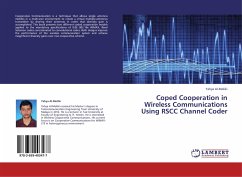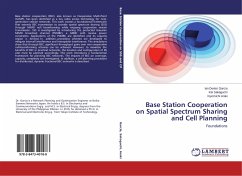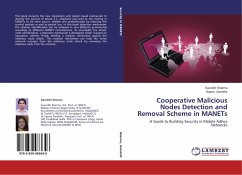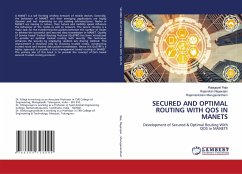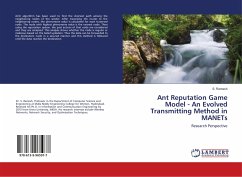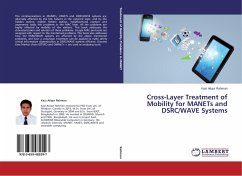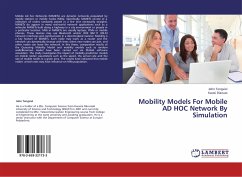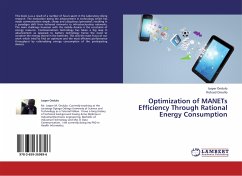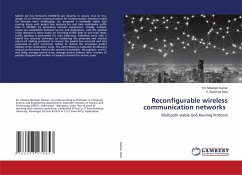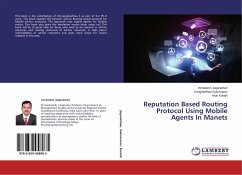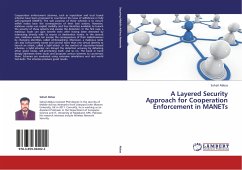
A Layered Security Approach for Cooperation Enforcement in MANETs
Versandkostenfrei!
Versandfertig in 6-10 Tagen
52,99 €
inkl. MwSt.

PAYBACK Punkte
26 °P sammeln!
Cooperation enforcement schemes, such as reputation and trust based schemes have been proposed to counteract the issue of selfishness in fully self-organized MANETs. The sole purpose of these schemes is to ensure selfish nodes bear the consequences of their bad actions. However, malicious nodes can exploit mobility and free identities available to breach the security of these systems and escape the detection. In the first case, a malicious node can gain benefit even after having been detected by interacting directly with its source or destination nodes. In the second case, malicious nodes can ...
Cooperation enforcement schemes, such as reputation and trust based schemes have been proposed to counteract the issue of selfishness in fully self-organized MANETs. The sole purpose of these schemes is to ensure selfish nodes bear the consequences of their bad actions. However, malicious nodes can exploit mobility and free identities available to breach the security of these systems and escape the detection. In the first case, a malicious node can gain benefit even after having been detected by interacting directly with its source or destination nodes. In the second case, malicious nodes can escape the consequences of their misbehaviours by changing identities, called whitewashing. Moreover, a malicious node can also concurrently create and control more than one virtual identity to launch an attack, called a Sybil attack. In the context of reputation-based schemes, a Sybil attacker can disrupt the detection accuracy by defaming other good nodes, self-promoting itself, and so on.The book in hand deeply addresses these issues and proposes various schemes to counteract them. Schemes are evaluated using extensive simulations and real world test-beds. The schemes produce good results.



